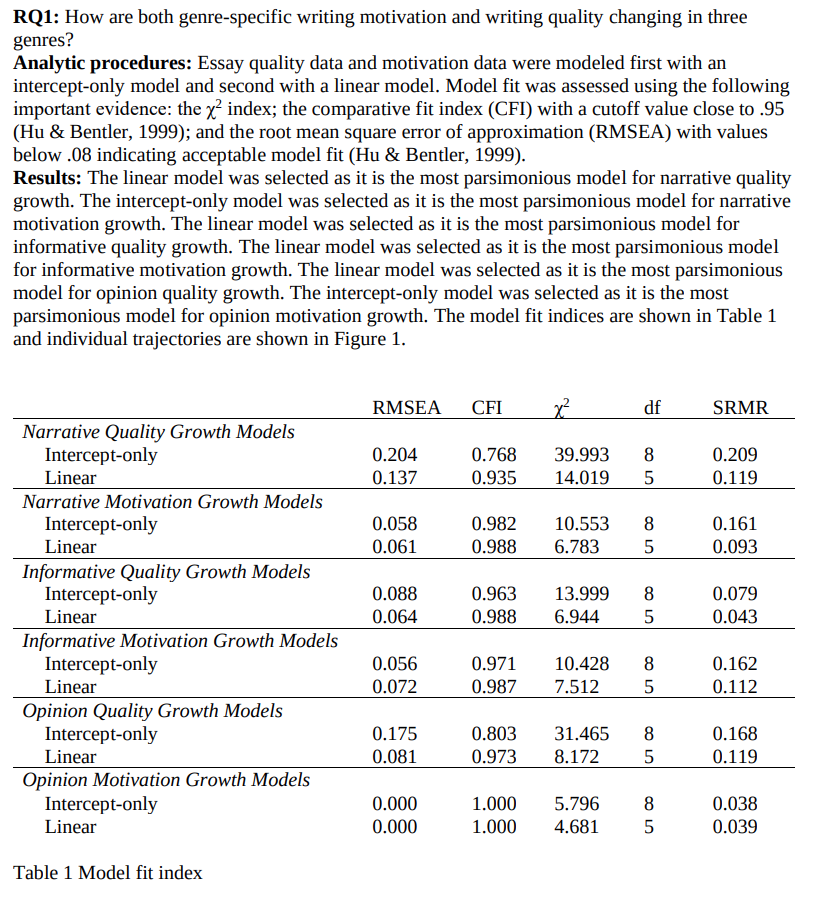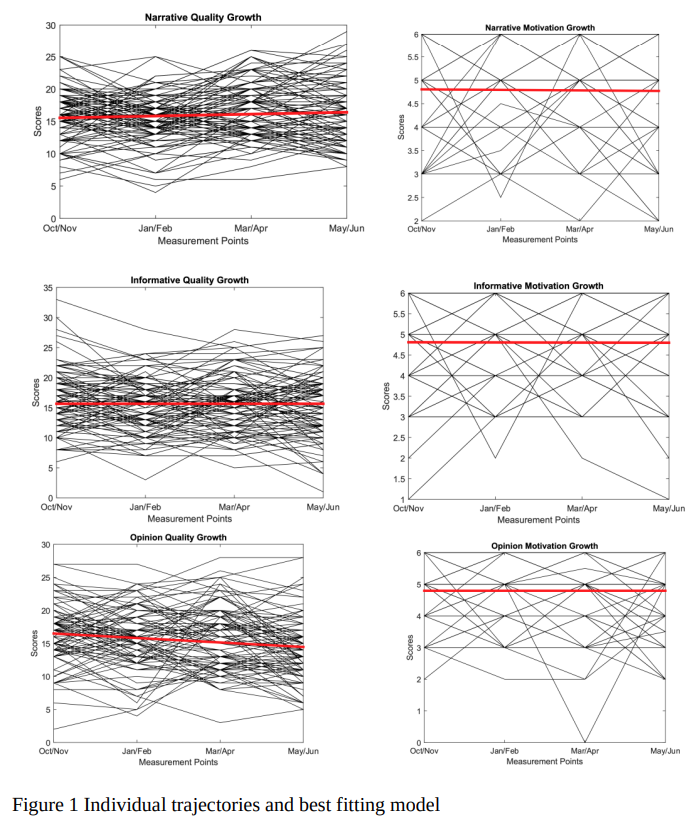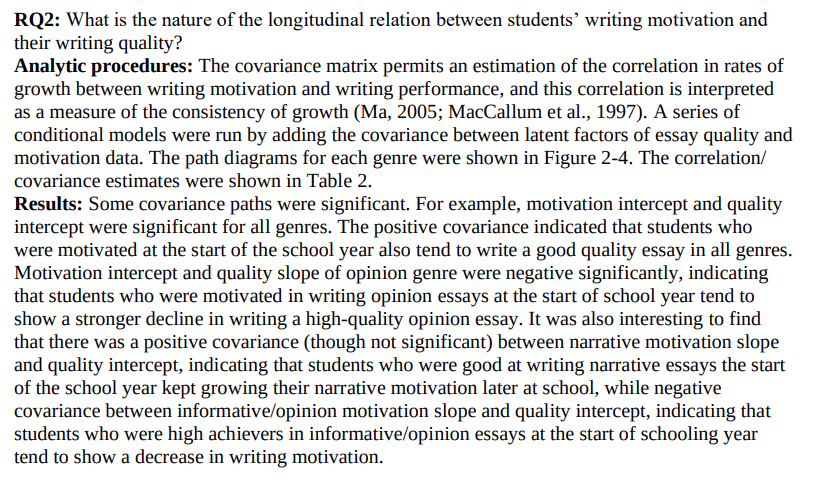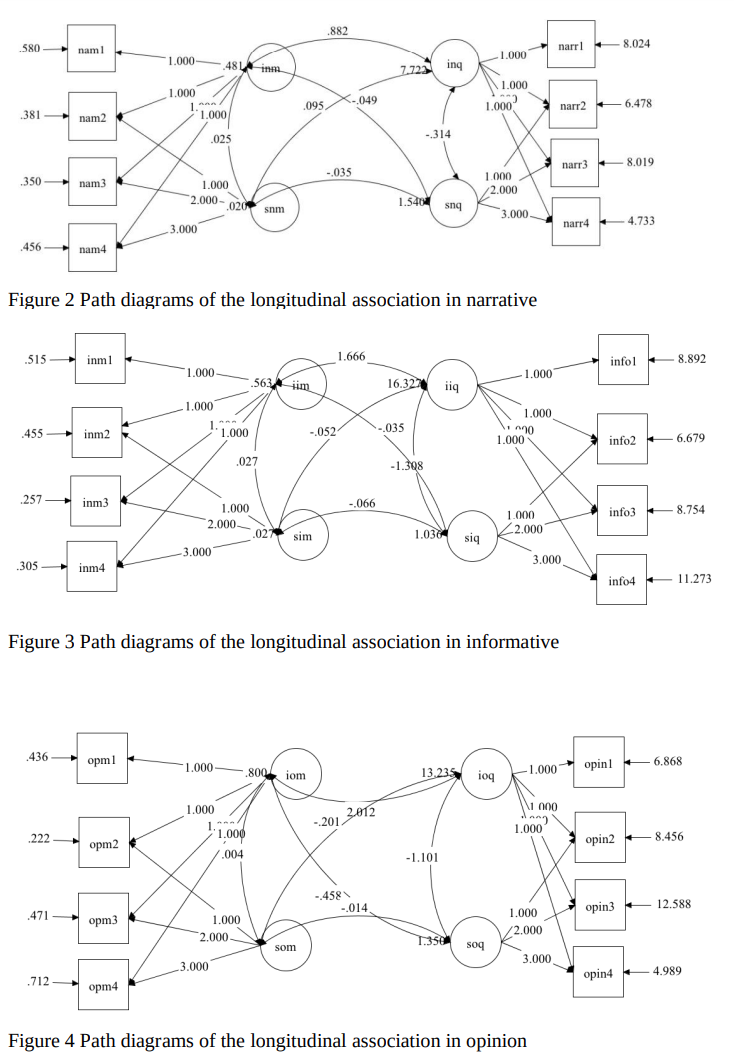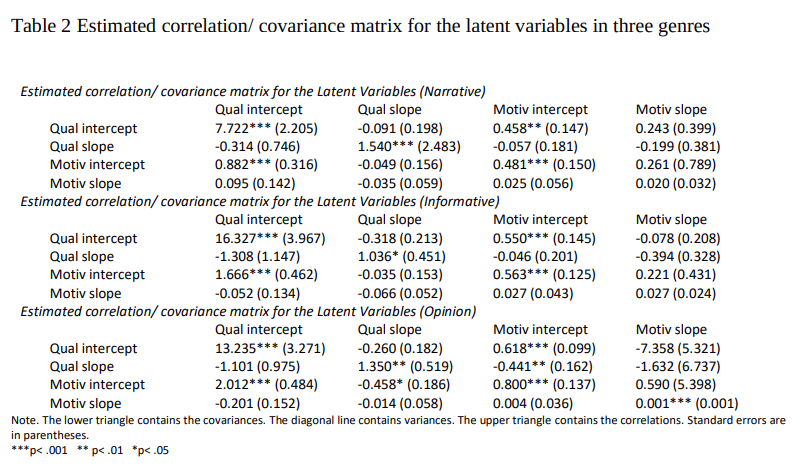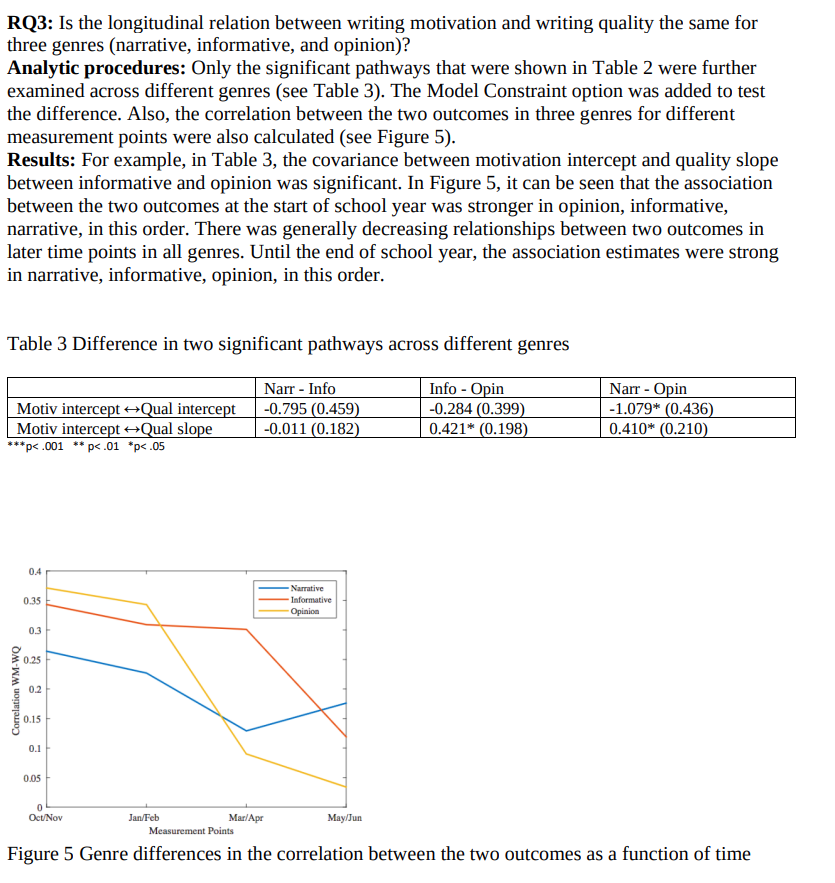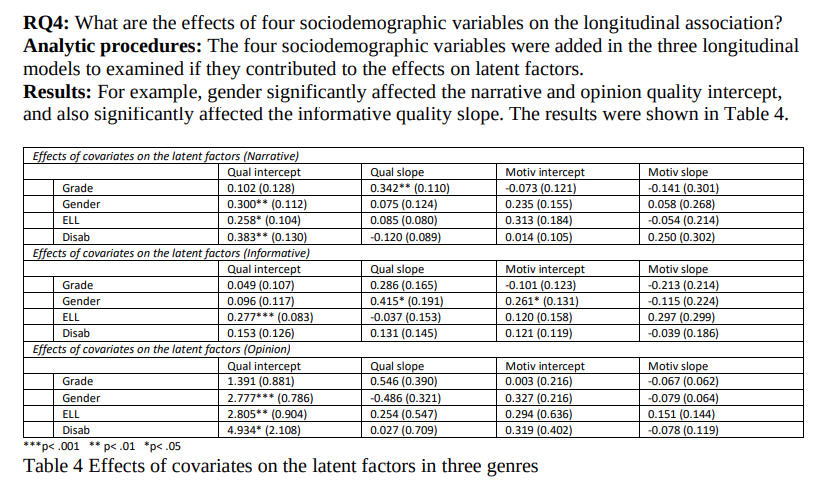Longitudinal Association Between Writing Motivation and Writing Quality Across Three Genres
Final project for MSU course CEP925
Project Background
The advancement of nationwide models for literacy intervention and instruction over the past two decades gears pedagogical focus towards the use of data-driven assessment and evidence-based programs (Bianco, 2010; McMaster et al, 2017). In order to promptly organize early identification and treatment support, many educational stakeholders give a high level of attention to improving children’s learning trajectories by implementing some progress monitoring tools such as curriculum-based measurement (Valentine et al., 2021). This course of action is particularly important for upper elementary-aged students writing because the genre-based writing tasks involved in the Common Core State Standards for Written Language (CCSS-WL) become progressively more complex and challenging from fourth grade onward, as new quality traits of writing added into writing curriculum and assessment at each grade level (Graham, Harris, & Santangelo, 2015). In addition, some research demonstrates an evident heterogeneity amongst students within upper elementary school level based on their performance on different writing measures such as writing component skills and writing motivation (see Troia, Wang, and Lawrence, 2023); hence, understanding the writing progress within- and between-person can be beneficial for educators to capture the general picture and provide differentiated instructions (McMaster et al., 2017).
However, the nature of developmental writing is difficult to grasp and varied (Sommers, 2008), especially for elementary students who are struggling to perform different writing. The scenario of steady progress is not always congruent with research findings. Some backward steps, albeit deviated from the best track, can still be meaningful to indicate that students may be learning some unfamiliar knowledge (Sommers, 2008). Nowadays, considerable research has explored the association between multiple factors and writing outcomes across developmental level (e.g., Berninger et al., 2010; Kent & Wanzek, 2016; Coker, 2006). For example, Kent and Wanzek (2016) demonstrated that some component skills such as handwriting fluency and reading proficiency, exerted continuing influence on the writing quality of students in Grades 4 and above.
Project Purposes
Whereas the relationships between writing motivation and writing outcomes at a single point in time have been widely documented (see Graham et al., 2017; Troia et al., 2013; Wright et al., 2021), there is a paucity of studies aimed to examine the trajectories of writing motivation over longer periods of time and its influence on writing growth as well. Furthermore, the moderating effects of student-level variables such as gender, grade, disability status, and English learner status, have yet to be examined in the longitudinal association between writing motivation and writing achievement. Therefore, the present study also sought to investigate whether the longitudinal association between writing motivation and writing outcomes operates differently across students with different demographic profiles. To these ends, the following research questions and corresponding hypotheses will be explored in this study.
- How are both genre-specific writing motivation and writing quality changing in three genres? I hypothesized that the trajectory patterns of both writing motivation and writing quality across four measurement points would all be best represented by the same paths.
- What is the nature of the longitudinal relation between students’ writing motivation and their writing quality? I hypothesize that the level and the longitudinal change in writing motivation will be associated with the level and change in writing quality after controlling for the effects of other sociodemographic variables including grade, gender, English learner status, and disability status.
- Is the longitudinal relation between writing motivation and writing quality the same for three genres (narrative, informative, and opinion)? Following the second research question, I hypothesize that the longitudinal association of motivational predictors to writing quality will differ across genres.
- How do gender, grade, English learner status, and disability status impact the longitudinal association between writing motivation and writing quality? I hypothesize that students who are female, older, native English speakers, and typically achieving will exhibit a stronger relationship between writing motivation and writing quality than those with the opposite profiles.
Analysis Tools
Mplus and R.
Results
